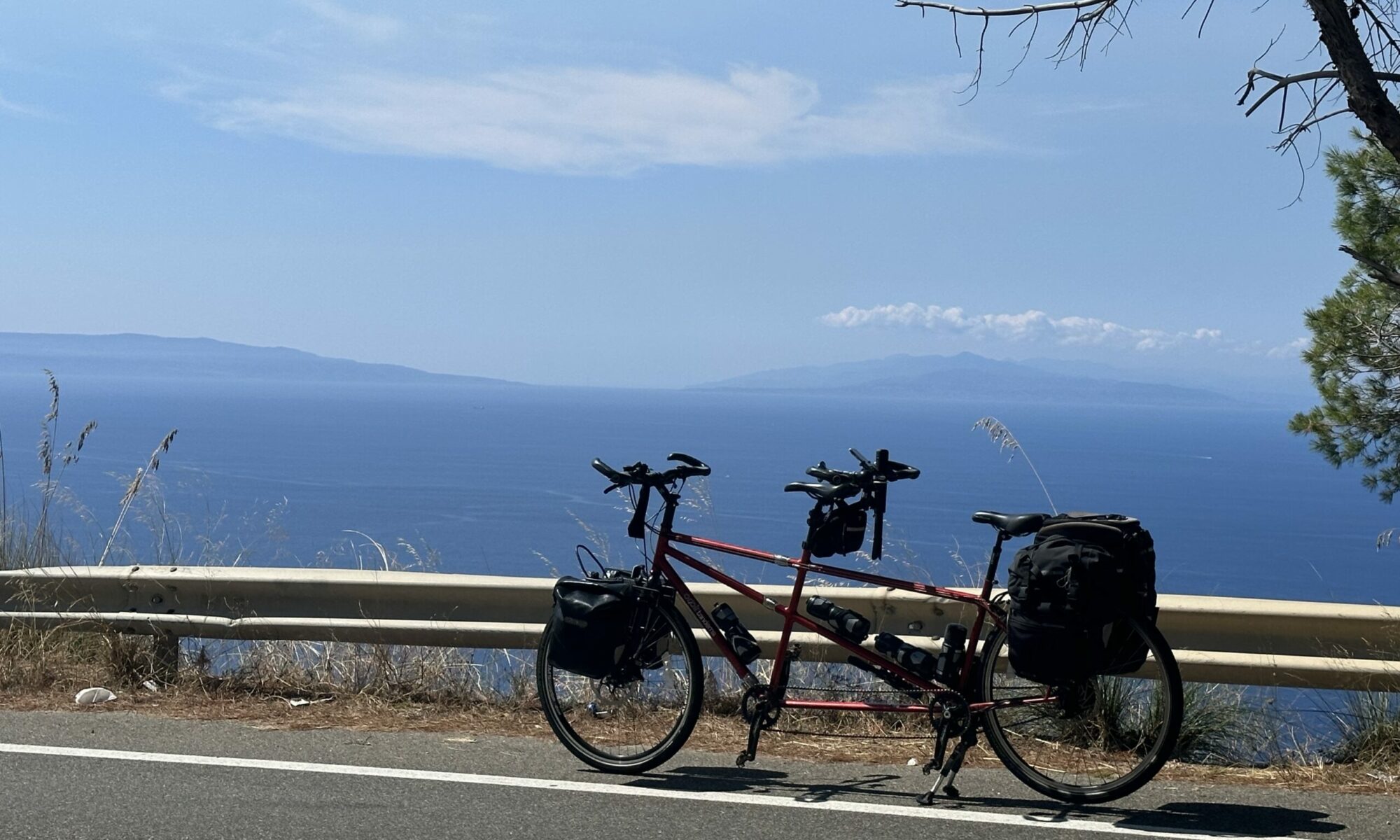Jaipur is known as the “Pink” city, although it’s really more like terracotta. Or (whisper it) orange. It’s painted, rather than the natural stone colour, originally to welcome Prince Albert in 1876. It’s very low rise, the streets lined with ‘kiosk’ shops, with macaques sitting on balconies above looking for open windows to perform food raids.
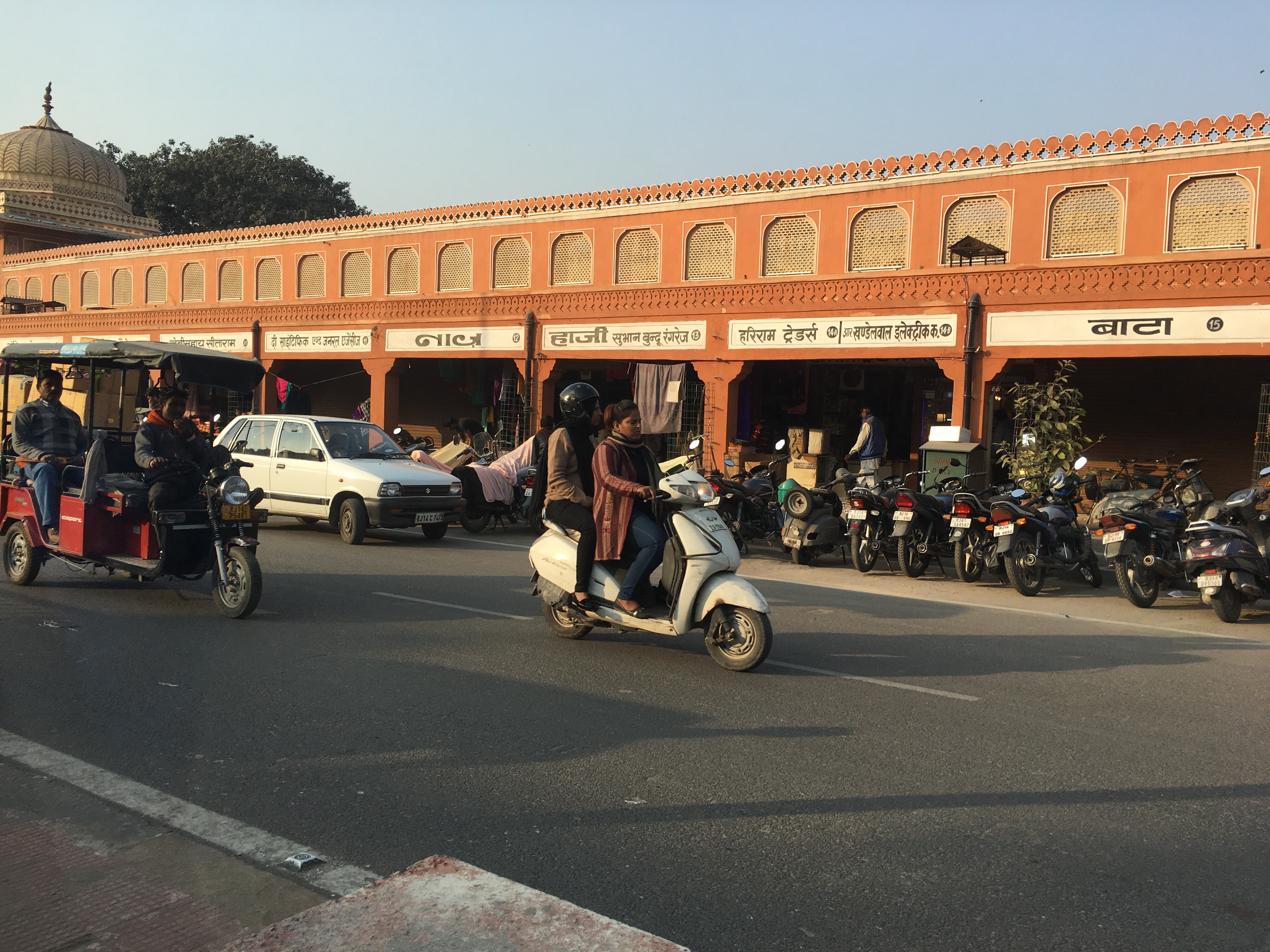
There is much less English script to be seen on signs except in the touristy areas, it’s mostly the rather beautiful curly/straight Hindi script. There are tiny stripy squirrels everywhere, little furry Murray Mints.
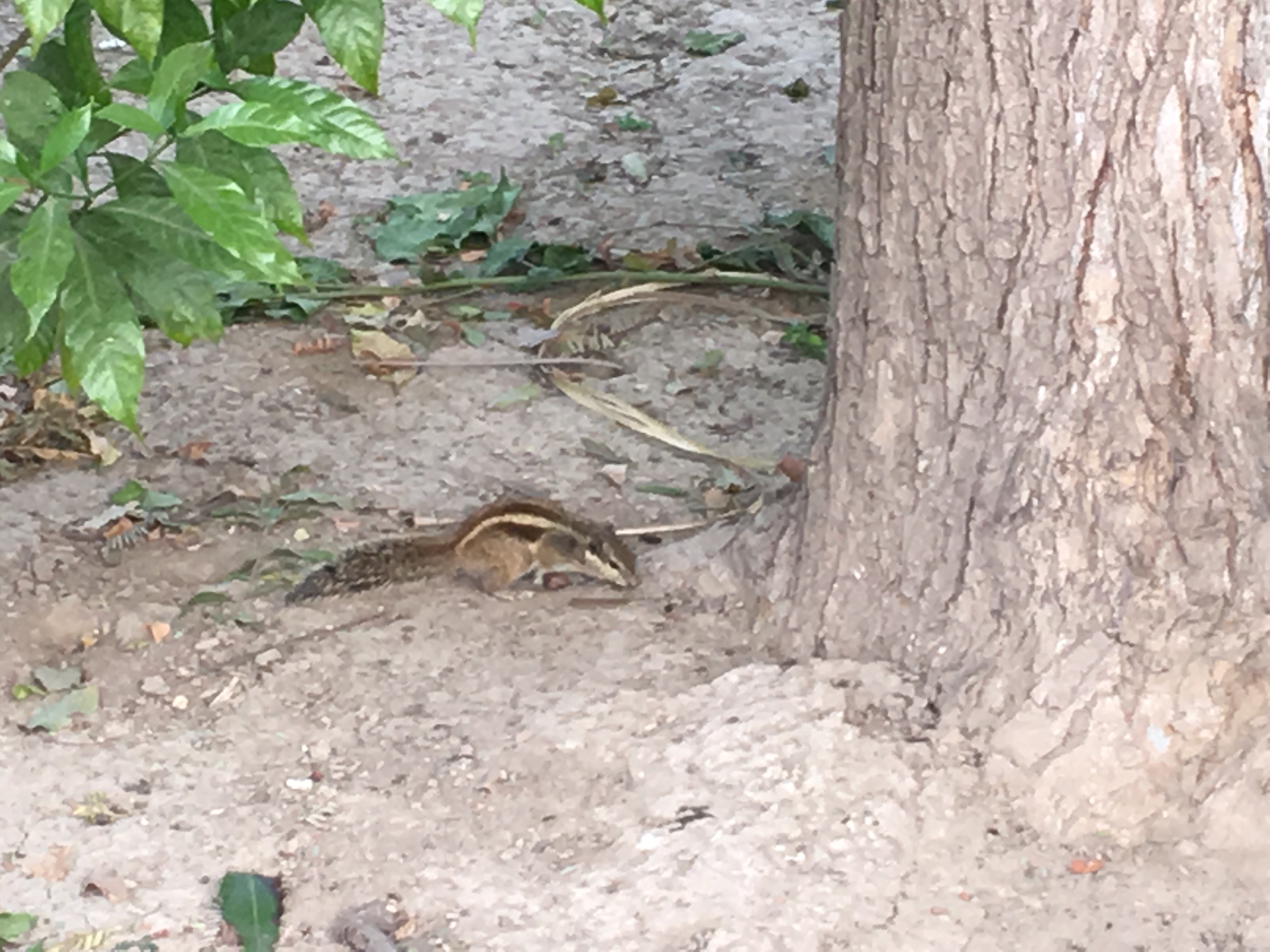
Our lovely hotel was just outside the city walls. We were welcomed by trumpet! And ‘namaste’, of course, we’re getting the hang of that now.
Our tour of Jaipur began early, with a quick photo op at the Palace of Winds.
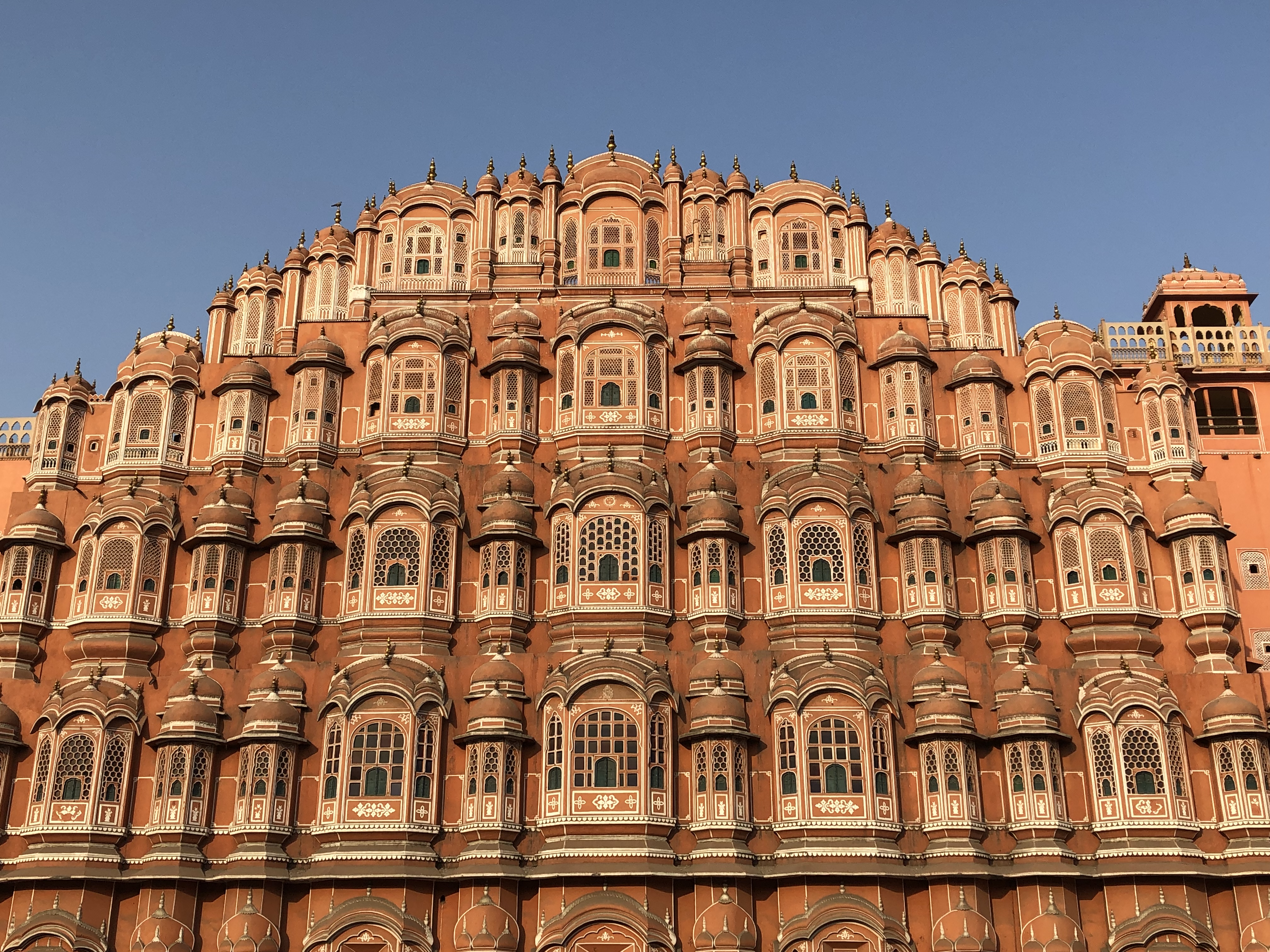
It was a good introduction to the architecture of Jaipur, filigree stonework, with little tiny windows out of which women would peep. Our next stop, the Amber Fort, was spectacular, with great views up to the older Jaigarh Fort higher on the hill behind.
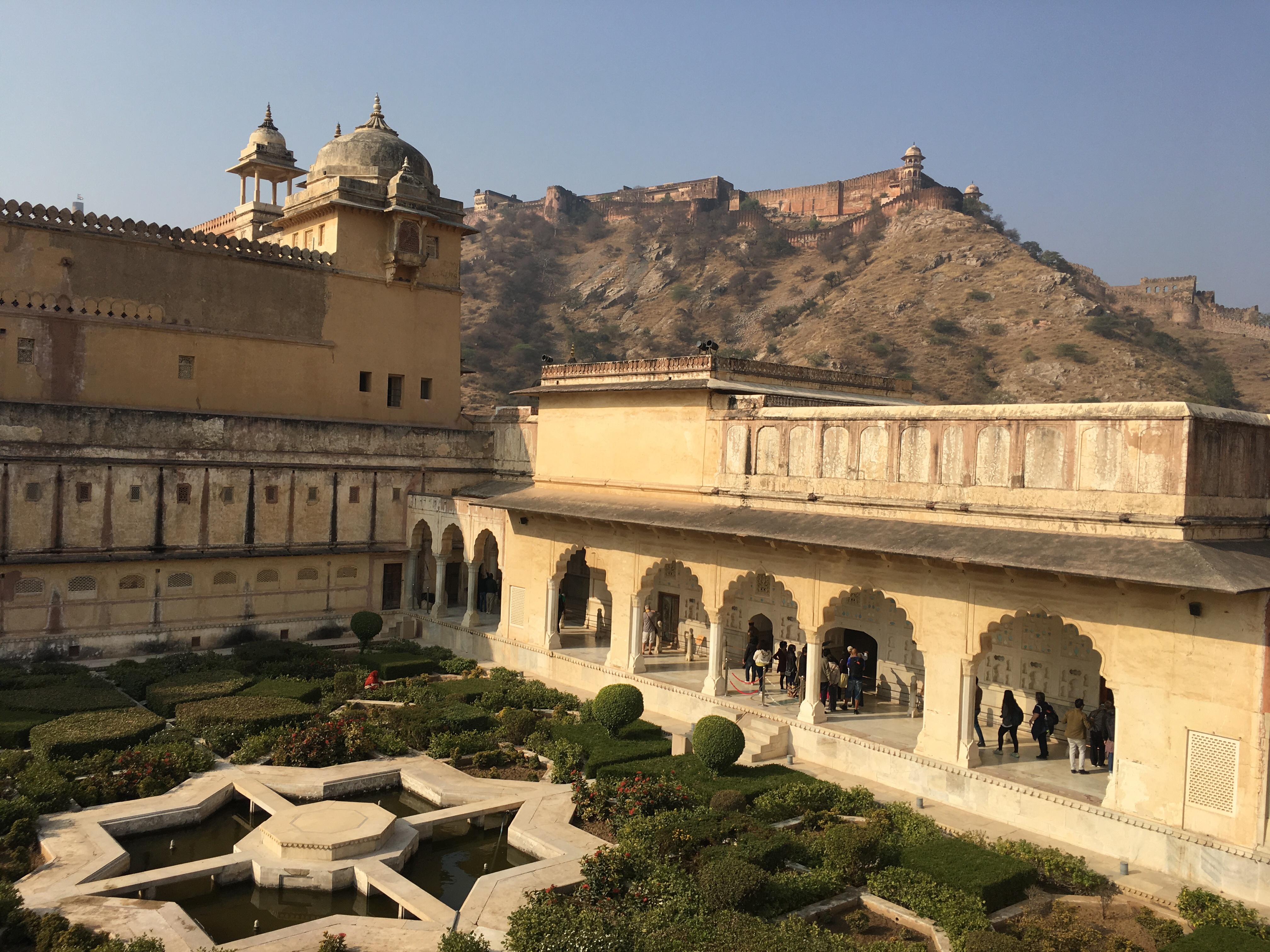
There were blue skies at last, very welcome after the highly polluted foggy air in Delhi. Elephants were taking tourists up, but only during restricted hours, and for no more than five trips each.
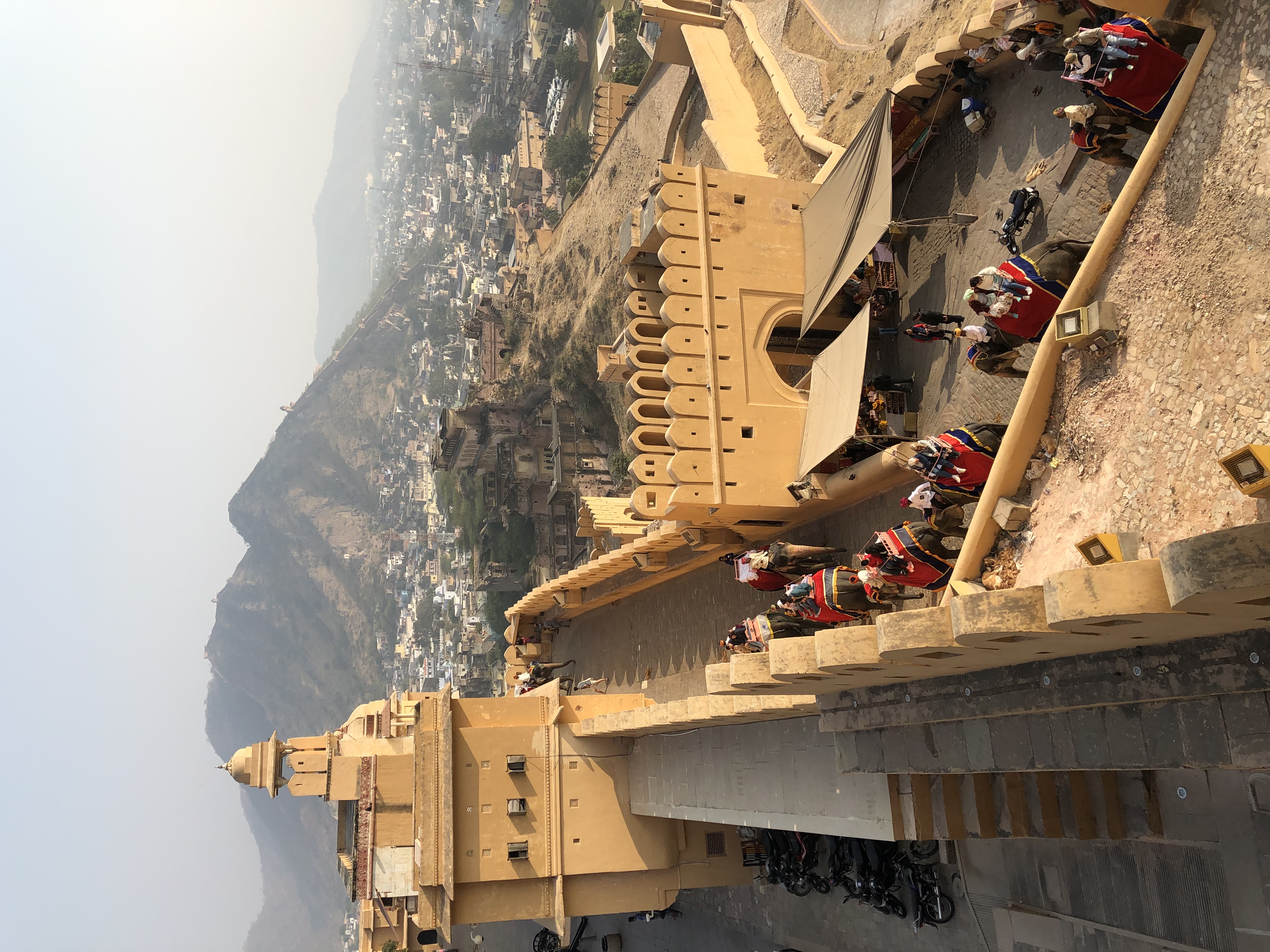
Our very knowledgeable guide explained each area of the fort as we moved through, and the history of the construction, the mixture of Hindu and Mughal architecture and the fragile relationships between the Hindu princes and their Mughal conquerors was fascinating.
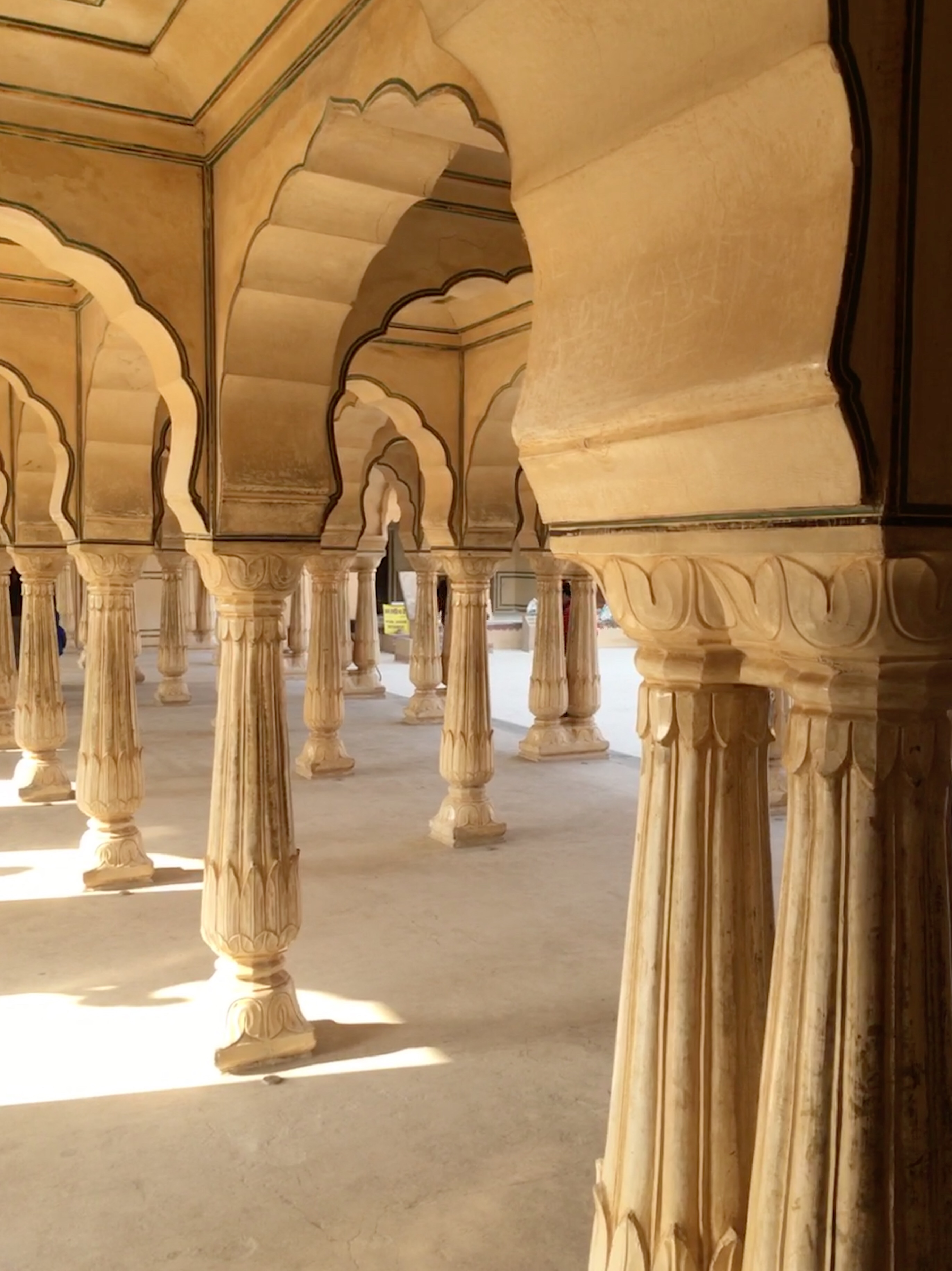
The hall of mirrors was particularly beautiful, the walls and ceiling a sort of mosaic of small convex mirrors to catch and throw the light better. Our guide’s descriptions of candles reflecting in the mirrors was very evocative. The women, wives and mistresses, were hidden away here too, allowed only to peep through tiny windows, to avoid being seen.
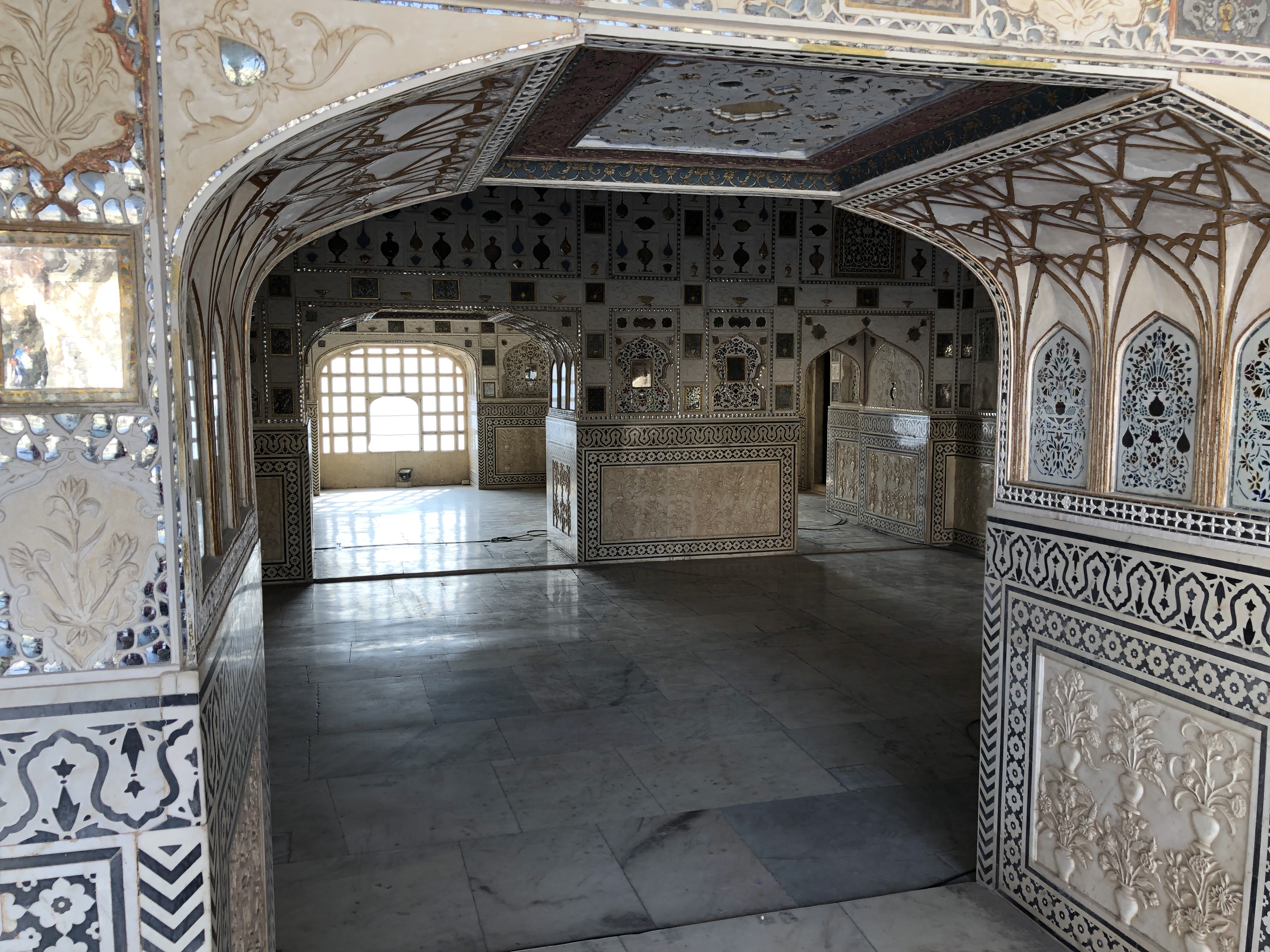
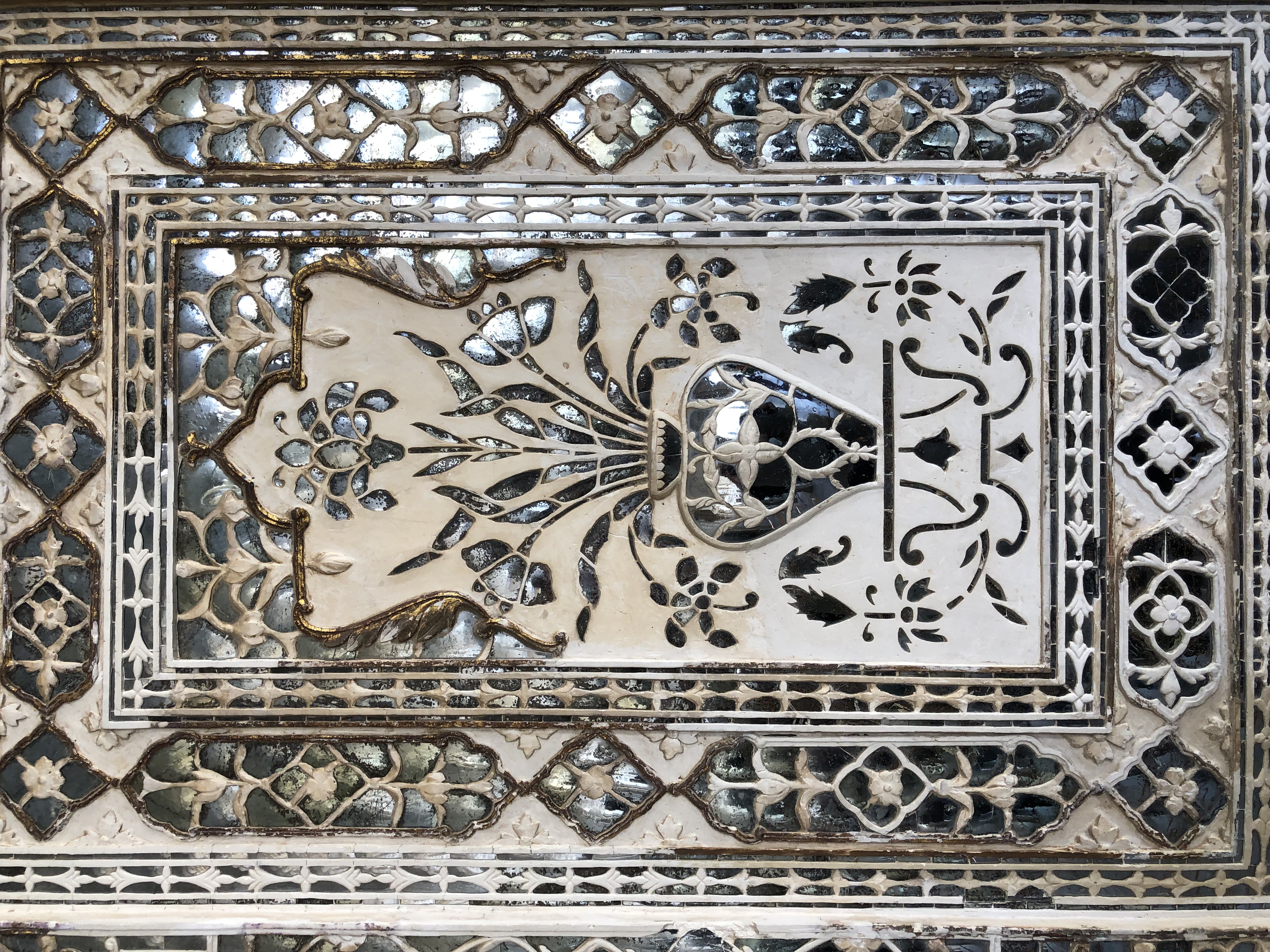
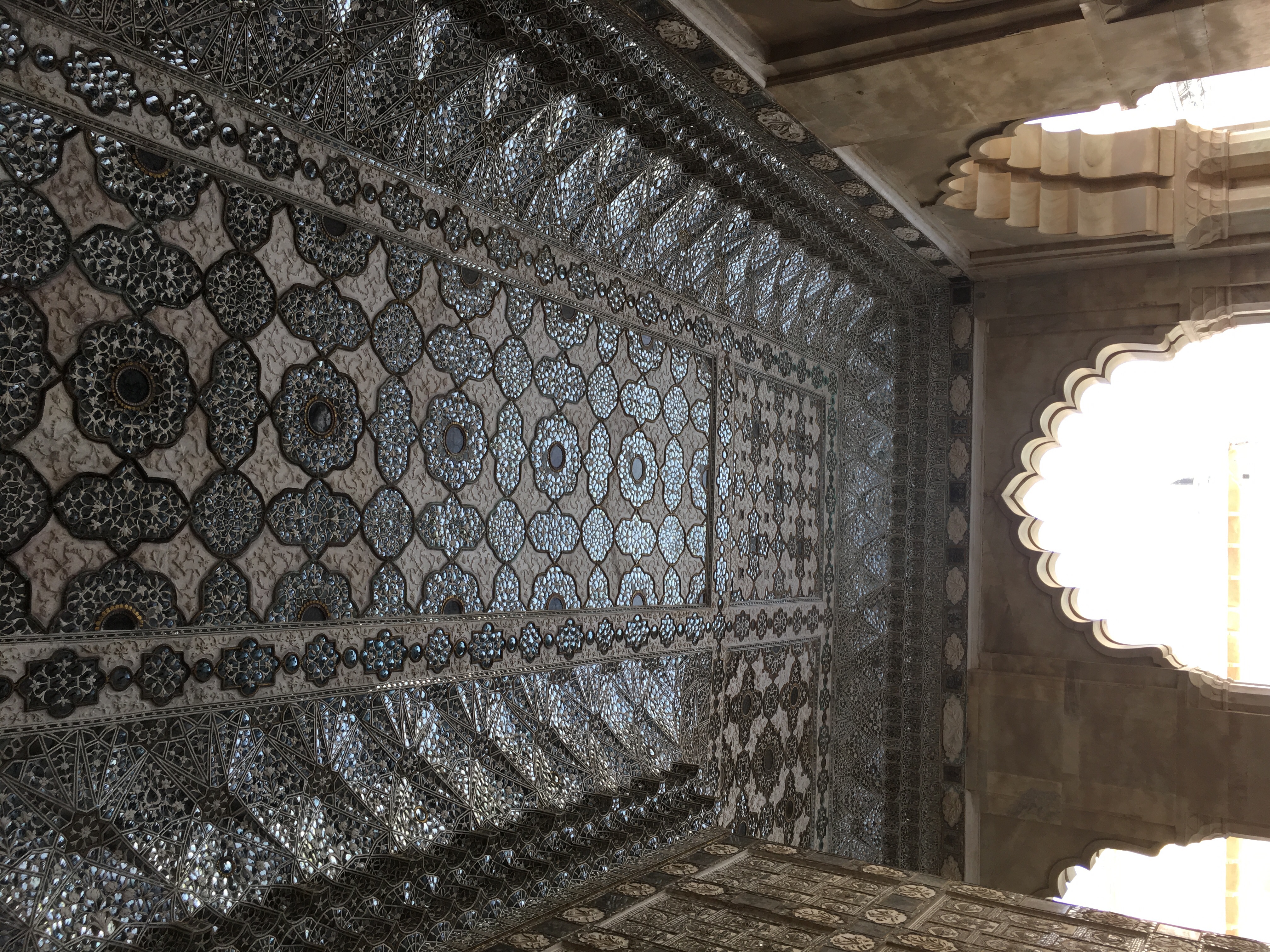
Our guide was at pains to point out that Indian women are afforded complete equality in modern times, of course, including being fighter pilots in the Army. That was certainly our experience of working with software development teams in Bangalore, which were roughly 50/50 male/female, probably more ‘even’ than at home.
There was an inevitable detour to carpet/textiles demonstration (read: shop), then lunch (more Dal for Clare). We were serenaded by a man playing interesting musical instruments, including this surprisingly loud stringed instrument.
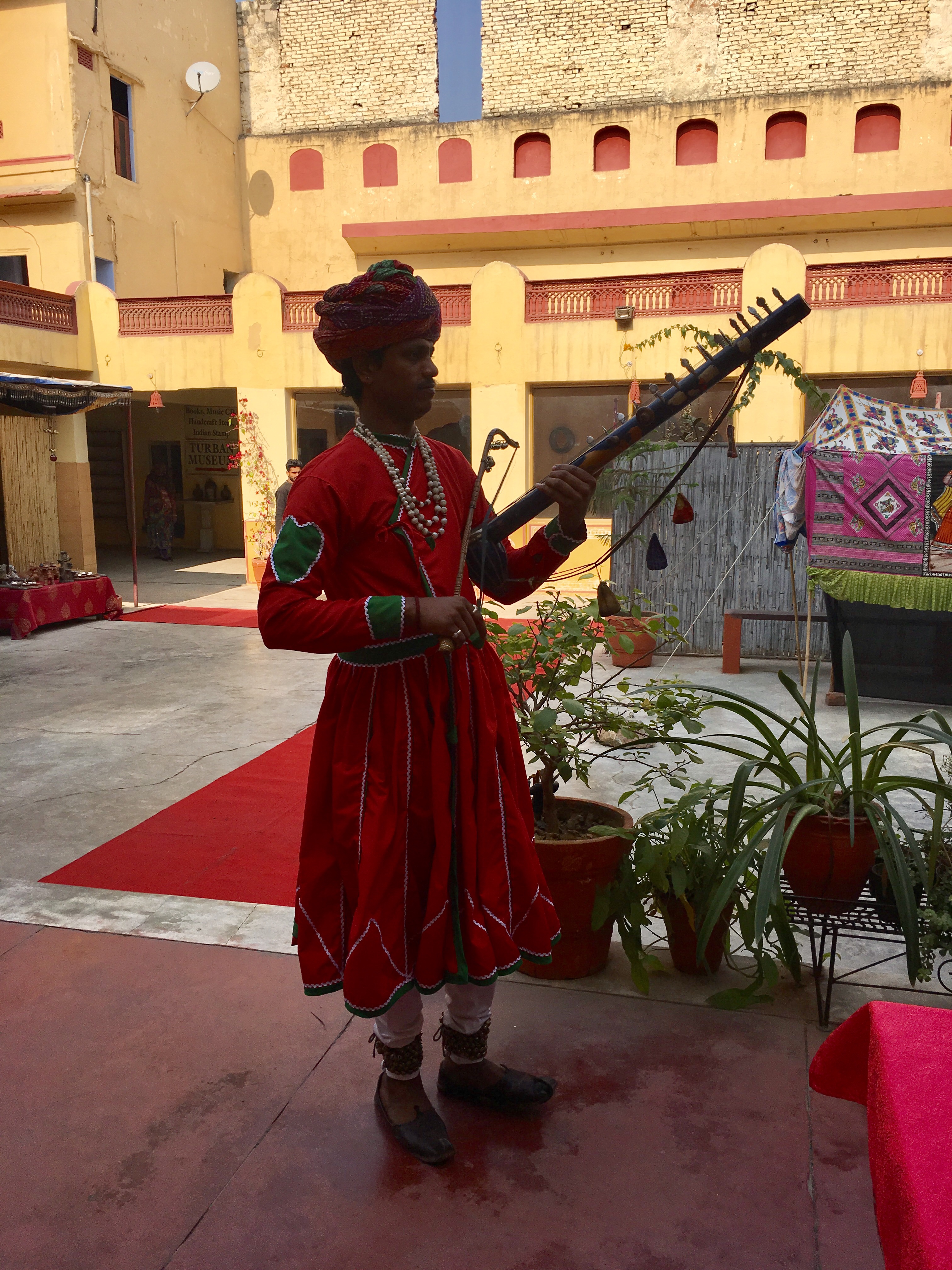
It had eight strings played by a very loose horsehair bow, and the tuning controlled by just one further string. A particularly noted half coconut shell at the bottom provided an integral drum. Yes, he was using coconuts…!
After lunch, the first stop was the Jantar Mantar observatory, a sort of mathematical theme park! It was full of instruments built in the 1700s by Rajput king Sawai Jai Singh II, he of the Amber Fort, in order to research calculation of accurate ‘Jaipur’ time using the position of the sun and stars. There were sundials, including the world’s largest, accurate to two seconds, and instruments to calculate the angle of the Earth’s rotation. Most came in pairs, for use in summer vs winter, or to allow a human to enter the instrument to take an accurate reading. Fascinating.
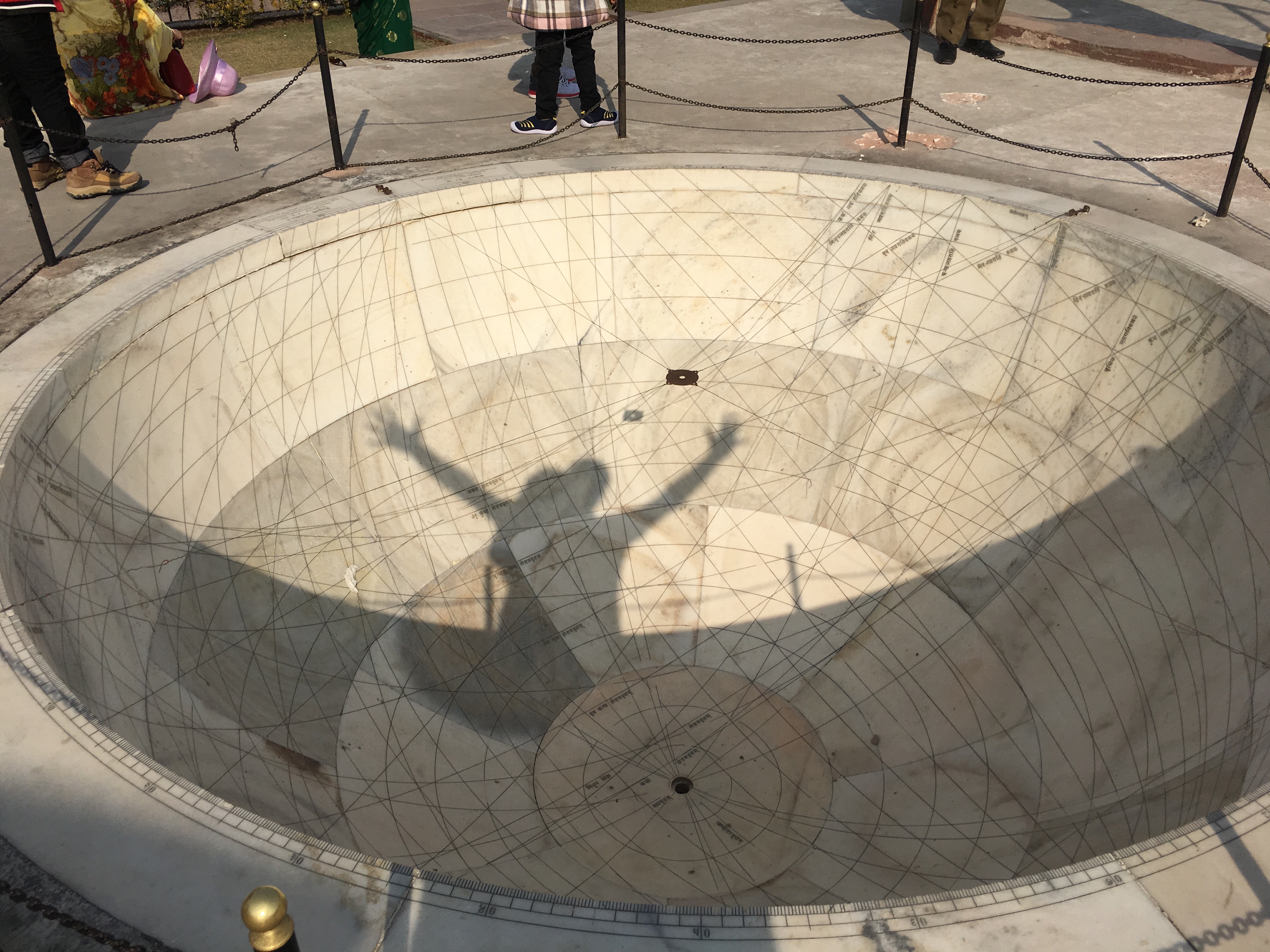
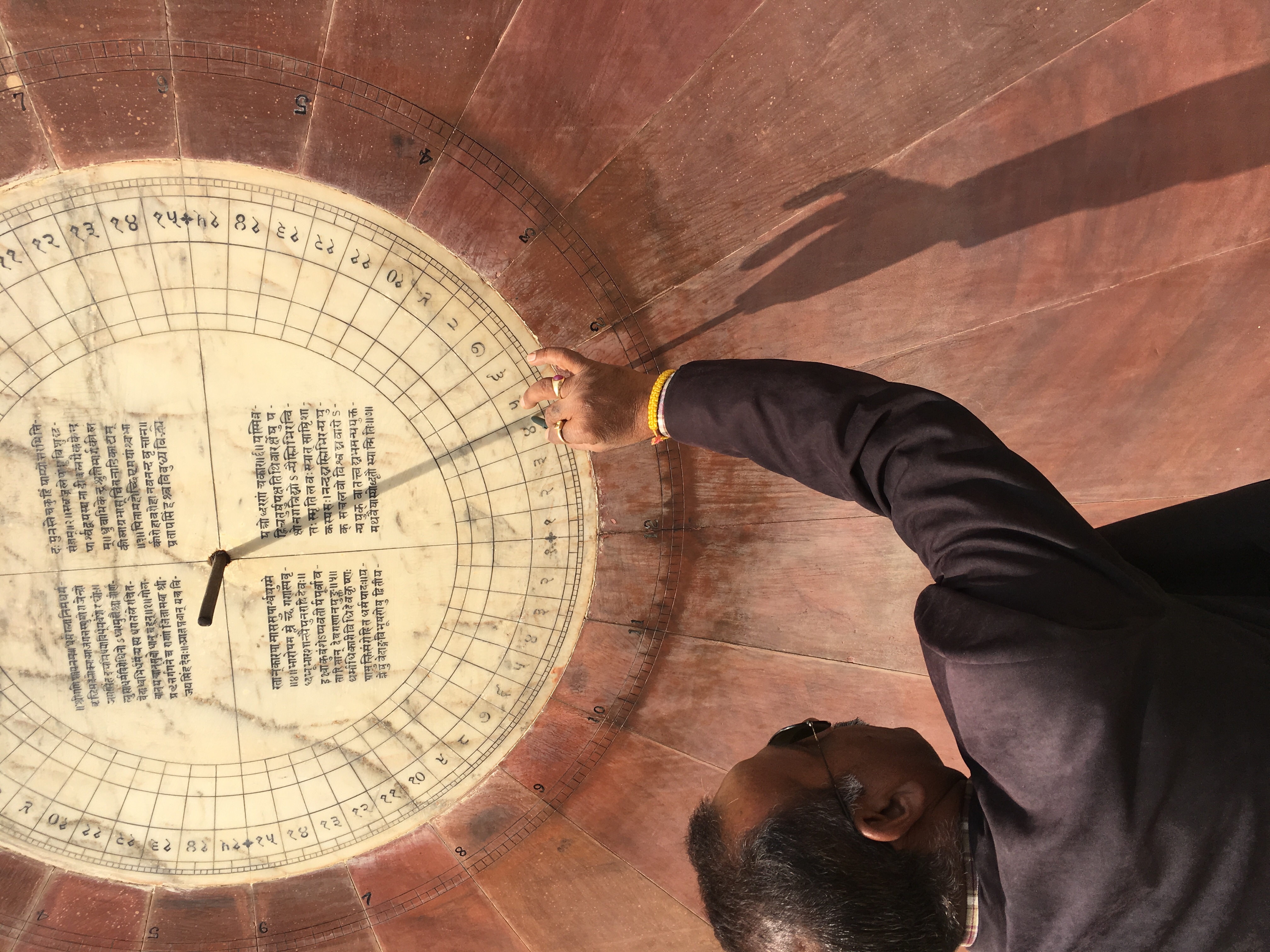
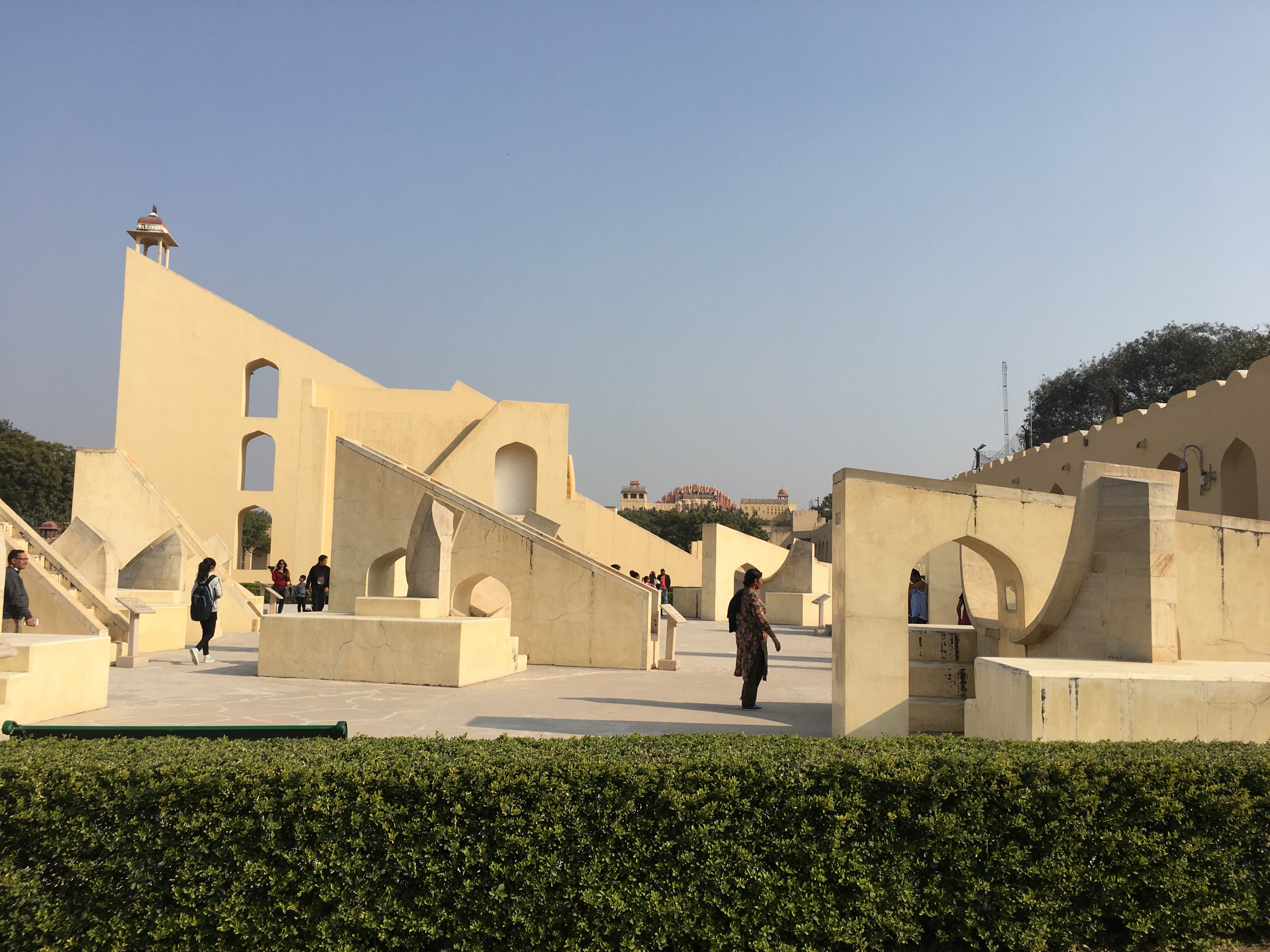
Our final stop was the city palace, a museum with clothes of the maharajahs, weapons and other artefacts. The fairly modest current royal palace was adjacent (it’s a purely informal royal-ish family now).
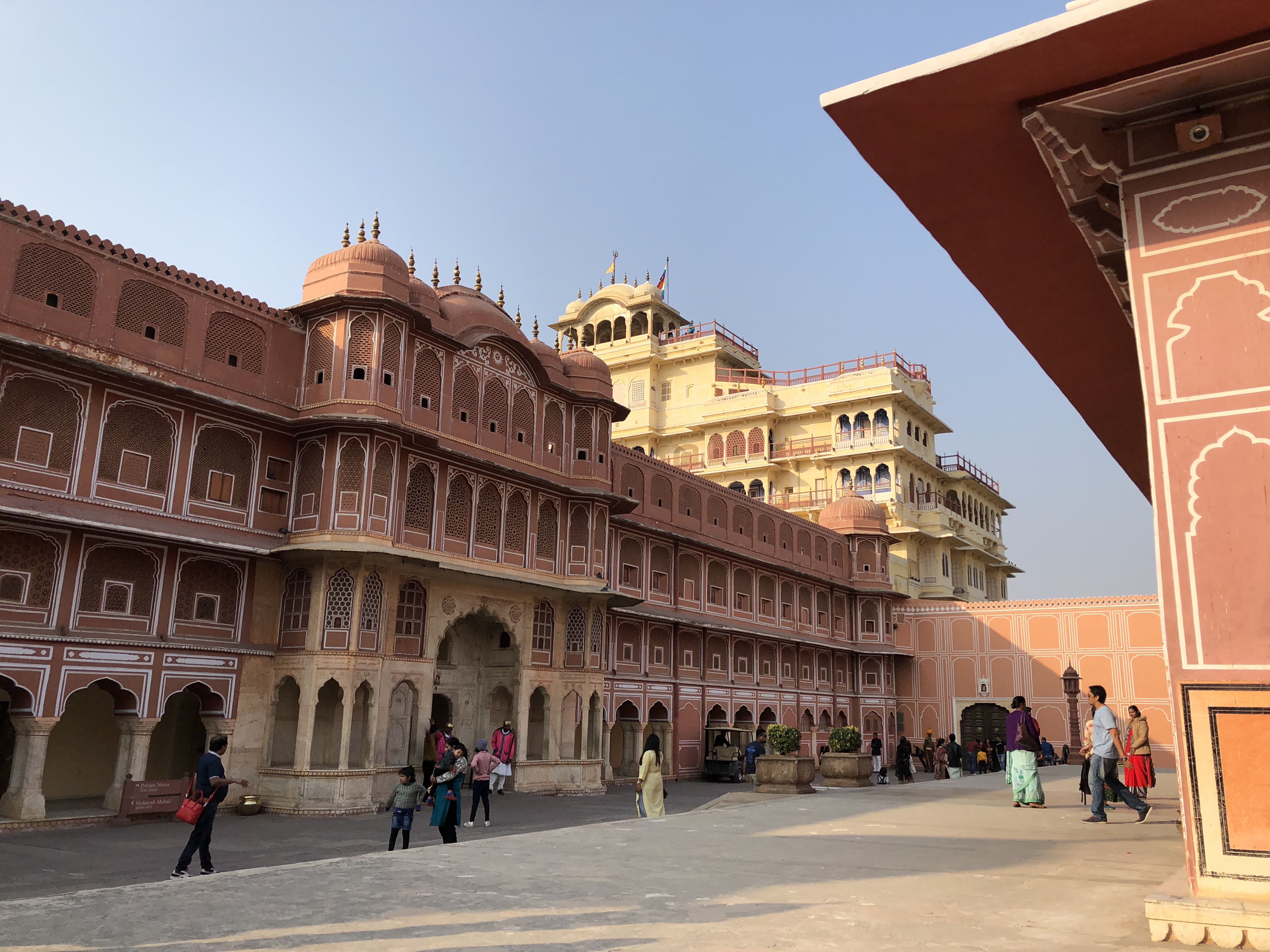
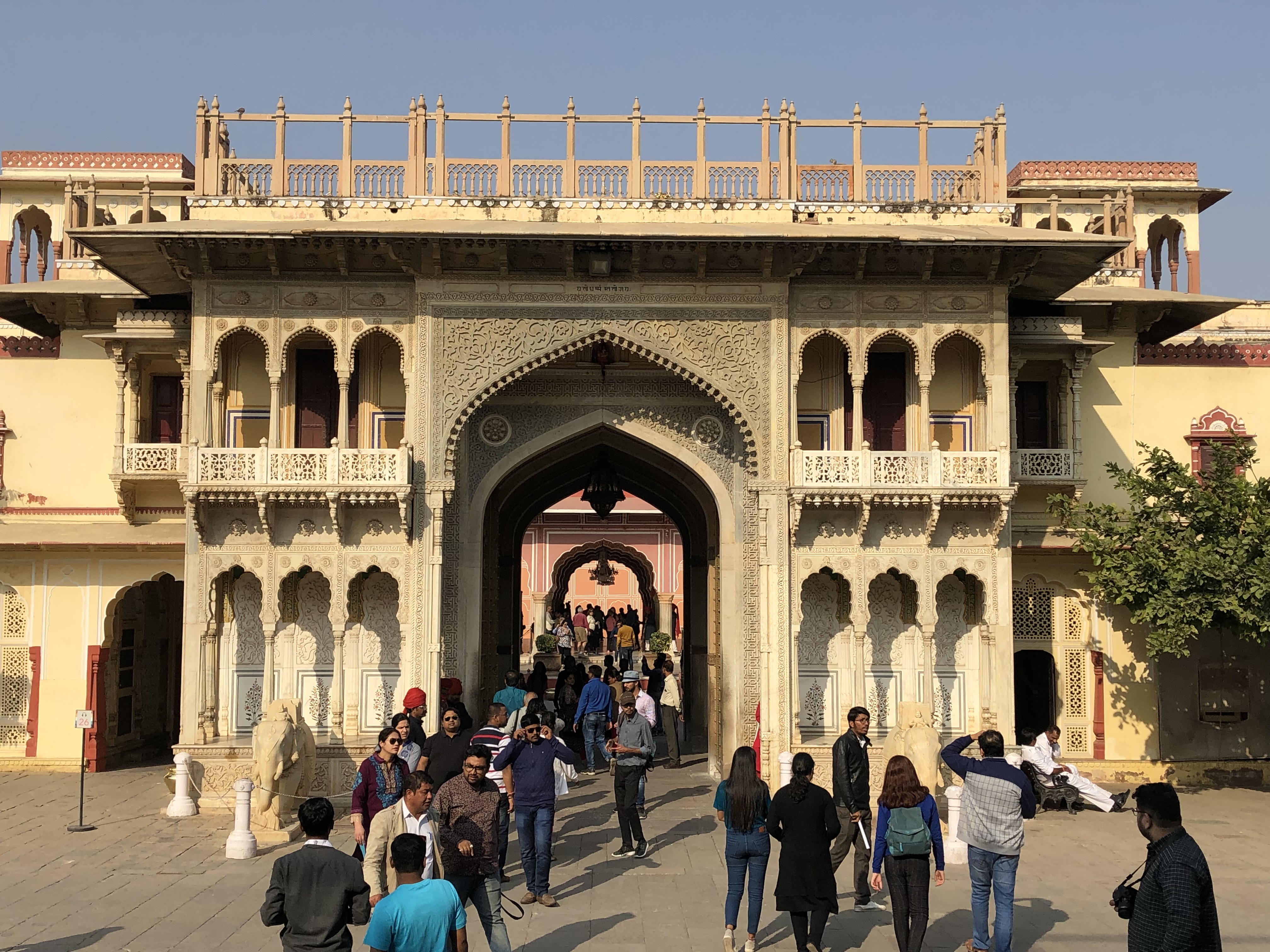
An Indian family requested a photo with Jonathan, stunned by how tall he is!
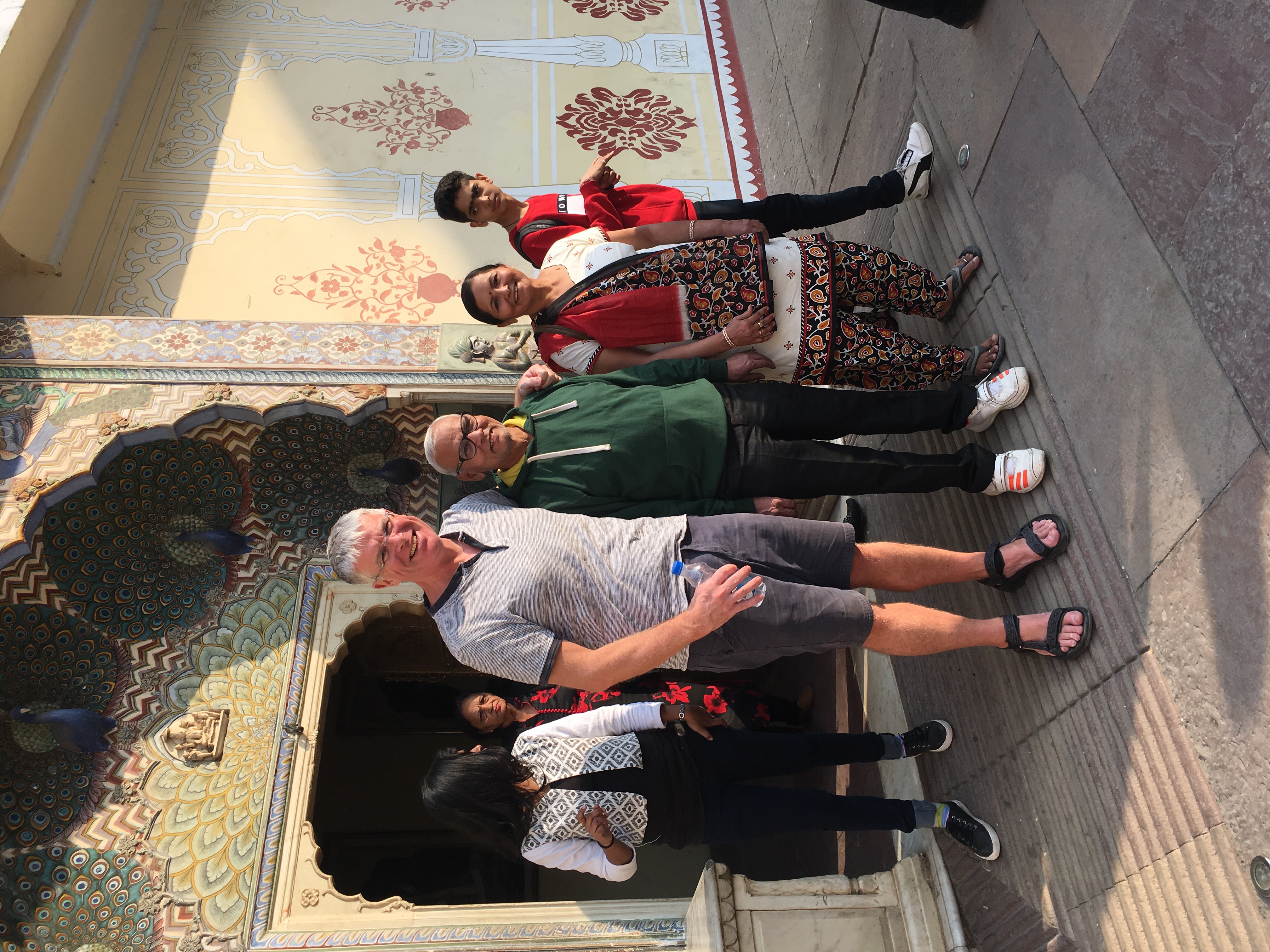
We declined a further detour to a jewellery “demonstration”, and our driver braved the Jaipur rush-hour back to the hotel.
The rush-hour traffic was truly awful, because they’re building a new metro line. It’s been under construction for five years, but no-one seems sure it will ever be complete! Our driver, Ramesh, was calm, as always, and threaded us through the jungle of tuk-tuks. Some of them are really old Piaggio ‘Ape’ vehicles (see Italian cycling blog…).
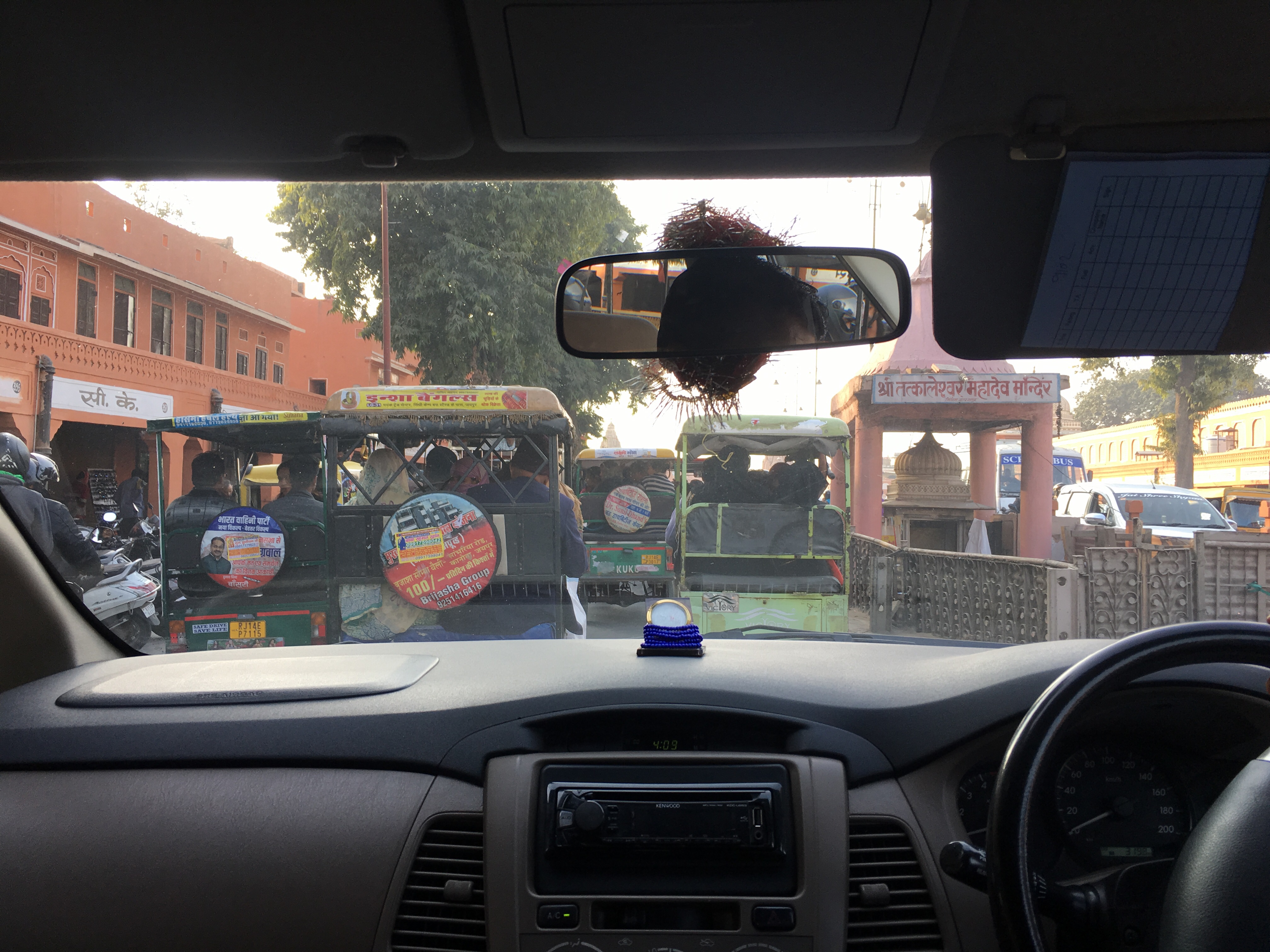
Next stop Agra, and the Taj Mahal.
